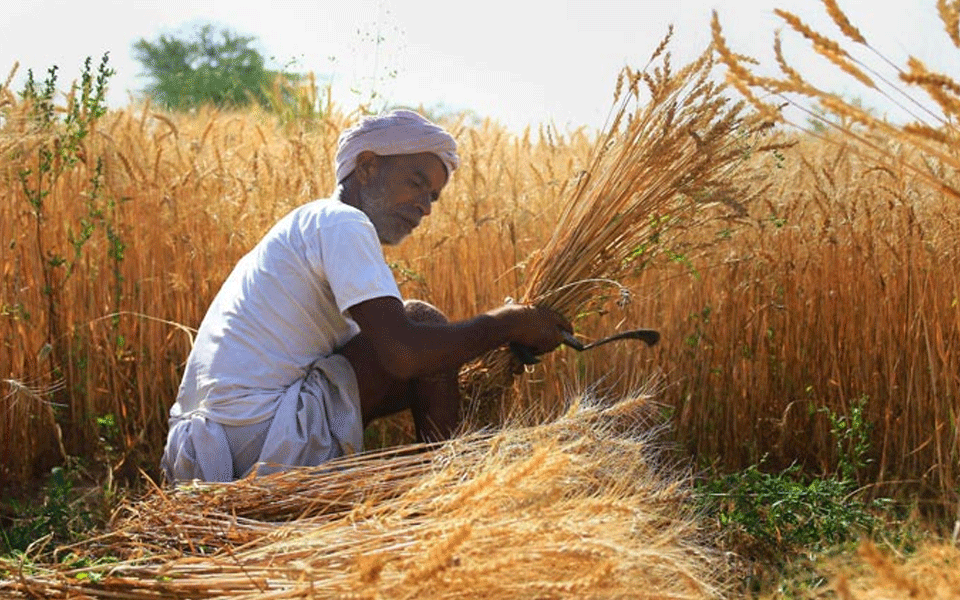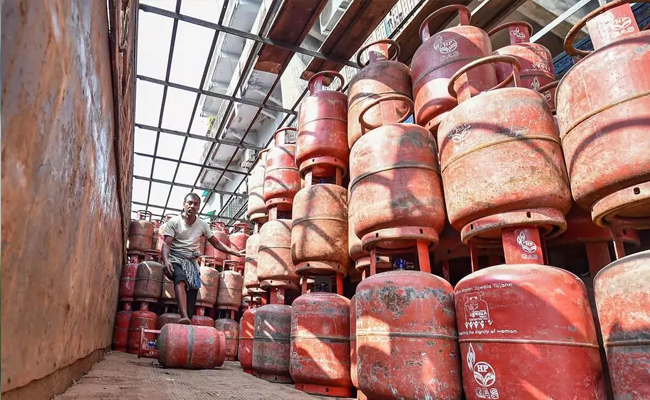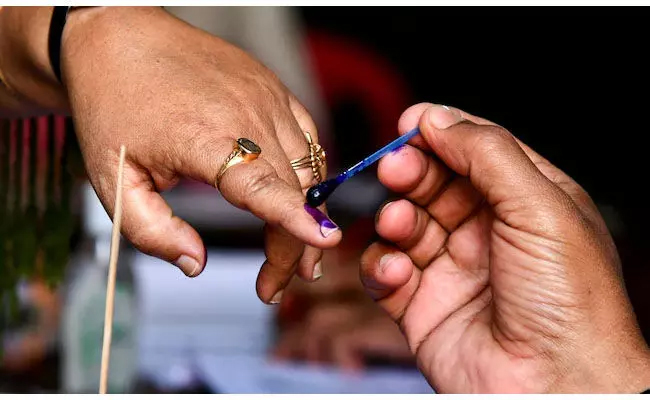New Delhi(PTI): The government on Tuesday hiked the minimum support price (MSP) of six rabi crops by up to 9 per cent, with Rs 110 per quintal increase for wheat crop to boost domestic production and farmers' income.
Wheat MSP has been raised by 5.45 per cent to Rs 2,125 per quintal from Rs 2,015 per quintal to encourage more area under the crop amid tight government stock position owing to low procurement, fall in production and higher exports.
The decision to increase the MSP of rabi crops for 2023-24 marketing year was taken at a meeting of the Cabinet Committee on Economic Affairs (CCEA) chaired by Prime Minister Narendra Modi, Information and Broadcasting Minister Anurag Thakur said in a media briefing.
The cost of production of wheat is estimated at Rs 1,065 per quintal. The government has ensured a 100 per cent return over the cost of production in the case of wheat and mustard, he said.
Whereas in the other four rabi crops, it is between 50 to 85 per cent return over the cost of production, he added.
Asked if the hike in MSP of rabi crops would lead to food inflation, the minister said price rise in India is under control in comparison to other countries.
According to an official release, the support price of barley was hiked by Rs 100 to Rs 1,735 per quintal for the 2022-23 crop year from Rs 1,635 per quintal in the previous year.
Among pulses, the MSP for gram has been increased by Rs 105 to Rs 5,335 per quintal from Rs 5,230, while for lentil (Masur), it was hiked by Rs 500 to Rs 6,000 from Rs 5,500 per quintal.
In the case of oilseeds, the government has increased the MSP for mustard seed by Rs 400 to Rs 5,450 per quintal for the 2022-23 crop year from Rs 5,050 in the previous year. The MSP for safflower has been raised by Rs 209 to Rs 5,650 per quintal from Rs 5,441.
The absolute highest increase in MSP has been approved for lentil (Masur) by Rs 500 per quintal, followed by rapeseed and mustard at Rs 400. In percentage terms, MSP of masur has been enhanced the maximum at 9.09 per cent.
The MSP is the rate at which the government buys grain from farmers. Currently, the government fixes MSP for 23 crops grown in both kharif and rabi seasons.
Sowing of rabi (winter) crops begins in October, immediately after the harvest of kharif (summer) crops. Wheat and mustard are major rabi crops.
In case of wheat, the government decided to hike the MSP by Rs 110 per quintal as against Rs 40-50 per quintal in the last two years, keeping in mind the need to raise the domestic production amid falling government stocks.
With prices coming under strain owing to fall in domestic wheat output and over 50 per cent fall in government procurement at 19 million tonnes in 2022-23 marketing year, the government had to ban overseas sale of the grain in May.
While wheat prices have risen in comparison to the last two years, Food Secretary Sudhanshu Pandey on Monday said the increase in both wholesale and retail wheat prices is not "abnormal" and the government would intervene when required.
In the statement, the government said the increase in MSP for rabi crops for the 2022-23 crop year is in line with the Union Budget 2018-19 announcement of fixing the MSP at a level of at least 1.5 times the all-India weighted average cost of production, aimed at reasonably fair remuneration for the farmers.
Since 2014-15, there has been a renewed focus on increasing the production of oilseeds and pulses. The efforts have yielded good results. The productivity of pulses and oilseeds has increased substantially.
As a result, oilseeds production has increased from 27.51 million tonnes in 2014-15 to 37.70 million tonnes in 2021-22, as per the fourth advance estimates of the agriculture ministry.
Pulses production has shown a similar increasing trend. The seed minikits programme is a major tool for introducing new varieties of seeds in the farmers' fields and is instrumental in increasing the seed replacement rate, it added.
The government's priority is on increasing the production of oilseeds and pulses to make the country self-reliant and reduce import dependency.
The formulated strategies are to increase production through area expansion, productivity through high-yielding varieties, MSP support and procurement. The government is also promoting the adoption of smart farming methods through the use of technology and innovation in the agriculture sector in the country.
Besides, the government is implementing a Digital Agriculture Mission (DAM), which includes India Digital Ecosystem of Agriculture (IDEA), Farmers Database, Unified Farmers Service Interface (UFSI), Funding to the States on the new Technology (NeGPA), Revamping Mahalanobis National Crop Forecast Centre (MNCFC), soil health, fertility and profile mapping.
Under the National e-Governance Plan in Agriculture (NeGPA), funding is given to state governments for digital agriculture projects using emerging technologies like Artificial Intelligence and Machine Learning (AI/ML), Internet of Things (IoT) and blockchain.
The adoption of drone technologies is being done. To promote smart farming, the government is also promoting startups in the agriculture sector and nurturing agri-entrepreneurs.
Let the Truth be known. If you read VB and like VB, please be a VB Supporter and Help us deliver the Truth to one and all.
Thane (PTI): Authorities have seized illegally stored 1,839 gas cylinders and seven vehicles worth over Rs 67 lakh in the Dombivli MIDC area of Thane district, officials said on Saturday.
A special vigilance team of the Mumbai Rationing Department detected an illegal storage of domestic and commercial LPG cylinders in Phase-2 of Dombivli (East).
Cylinders belonging to multiple gas agencies were found stockpiled in closed vehicles, unauthorised warehouses, and open sheds without mandatory permissions from the Explosives Department, Fire Department, or oil companies, according to an official release.





